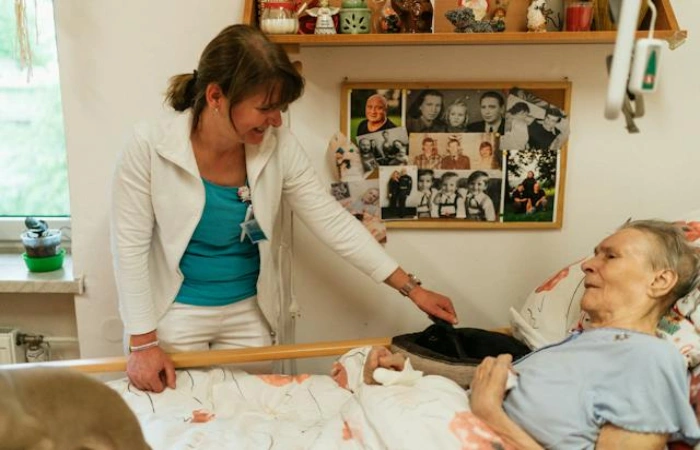Following a stroke, an individual’s brain and body are generally impacted to the point they’re often unable to function as they did again. In some cases, the symptoms are severe, with there being a need for specialized care that loved ones or close friends are unable to provide.
In those instances, hospice care after a stroke is a consideration as another form of care. Hospice care involves emotional, physical, and, in many cases, spiritual support for the family member and their caregivers. These incidents take an extreme toll on the individual, leaving the family in great distress.
It can be challenging to determine when to reach out for hospice care, but the severity of the stroke and its impact will give some indication. The patient’s health deterioration will be based on the part of the brain impacted by the incident and the resultant damage to the surrounding tissue.
Many benefits exist for turning to hospice care following a stroke event, including improving the patient’s overall quality of life by helping them function. Let’s review these benefits in greater detail.
Table of Contents
Benefits of Turning to Hospice Care Following a Stroke
Stroke is among the leading causes of disability and reasons for hospice care in the US. The victims benefit from the physical, emotional, and, in many cases, spiritual support of a hospice team, as do their caregivers.
The individual’s brain and body are typically so severely affected by these incidents that they’re unable to get back to their standard functionality. The need for specialized care is often required depending on the level of health deterioration caused by the stroke.
Hospice care can be beneficial in a number of ways for stroke victims, with the professional team aiming to improve the person’s overall quality of life. Here are some benefits to hope for with hospice care.
Assists with Functionality
The primary objective of hospice is to improve the quality of life for the patient by helping to relieve the suffering. Typically, in order to meet the criteria for hospice care, a patient needs to have a physician diagnosis indicating a lifespan of no greater than six months.
Go to https://www.healthpartners.com/blog/every-minute-counts-after-a-stroke and learn why every minute following a stroke is critical.
The care team can provide treatment in the home or in a specialized care center with trained professionals working alongside stroke victims to perform activities of daily living that are now challenging. These can be as severe as breathing, swallowing, eating, talking, and walking, plus using the bathroom.
Pain Management
There’s typically a considerable degree of pain suffered by stroke patients from the disrupted blood flow to the brain. Often, the victim falls into a coma or lapses into a persistent vegetative state.
Fortunately, an element of hospice care involves palliative services, which are centered on maintaining a sense of comfort and addressing pain. Part of the goal is to keep anxiety levels as minimal as possible.
Emotional Guidance and Support
While stroke brings the victim undeniable pain and suffering, there is also a psychological component where the individual endures incredible imbalances. The recommendation is for the patient and the caregivers to have qualified professionals provide individualized attention to avoid the constant turmoil.
It’s essential to have someone to guide you through tough situations, even a sounding board, to relieve some stress and hardship. Go here for guidance on caring for a stroke victim at home.
Care Planning
Hospice professional teams work with family caregivers, and anyone involved with the patient to establish an effective outline for care to ensure the victim receives sufficient coverage and quality services at all times.
That includes transferring all pertinent details regarding the patient between all caregivers involved with the victim, including an always up-to-date medication list and the supplies used with care, and ensuring the delivery and administration are adequately coordinated.
Support Around the Clock

Whether you’re a family member or a professional caregiver, there will be times when you have questions or need clarification about the protocol for treatment. Hospice care professionals offer their support at any time of the day or night.
Most providers can even send a team member to help if the victim is distressed. It’s important to reach out to experienced professionals with any concerns and to get immediate attention.
Final Thought
Hospice care offers an array of specialized medical professionals, all with the aim of providing stroke victims with their best quality of life following the event. These incidents alter an individual’s physical and emotional capacities, typically to the point where the person is unable to get back to how they used to be.
The health specialists with hospice assist patients with symptom and pain management, making the individual as comfortable and free from anxiety as possible. The organization is recognized for its compassion and desire to bring dignity to the individual’s remaining days.
